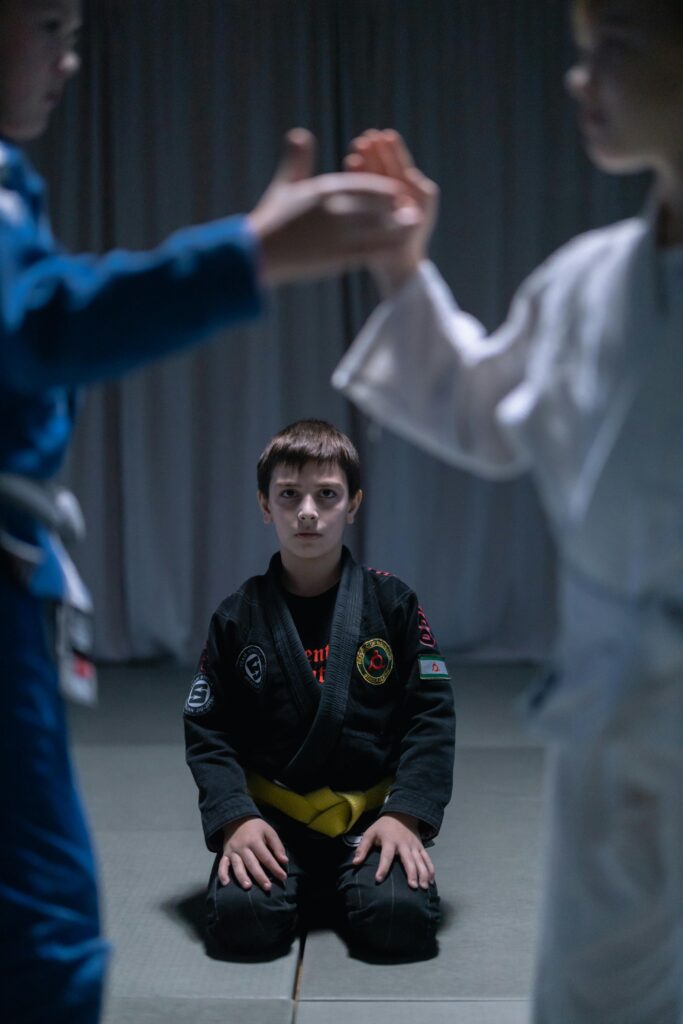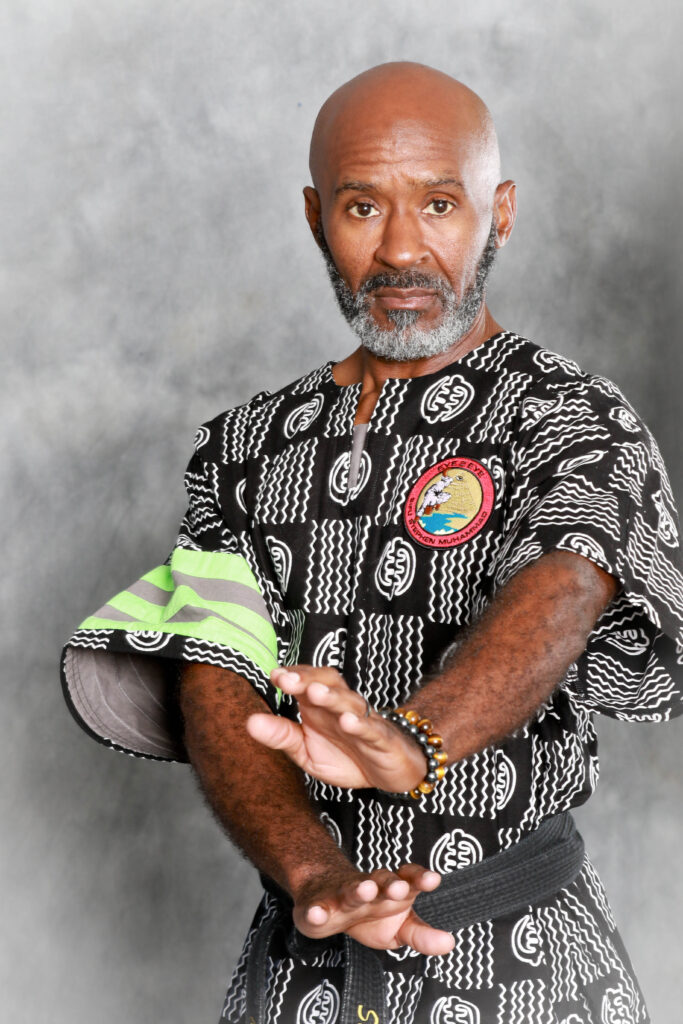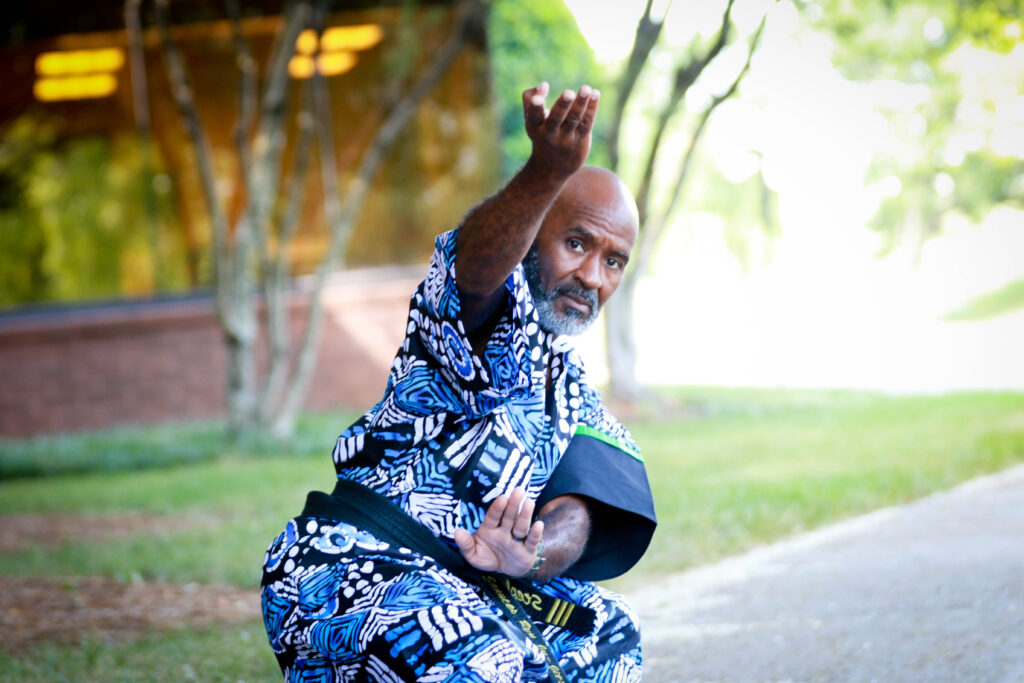If you’re like me, you probably want to give your child every opportunity to grow up strong, confident, and safe.
I’ve spent years watching kids blossom through martial arts and self-defense training, and let me tell you, the benefits go far beyond just learning to throw a punch.
Self-defense classes, especially those we offer at Eye2Eye Combat, teach kids so much more—they build mental fortitude, boost confidence, and even help kids make better decisions when they’re faced with tough situations.
In this article, I’m sharing four key reasons why learning self-defense is important for children and why it’s one of the best investments you can make in your child’s development.
What Makes Self-Defense Essential for Children?
Before I dive into the main points, it’s crucial to understand that self-defense isn’t about turning kids into fighters or teaching them to be aggressive. Far from it!
What self-defense actually does is teach kids how to avoid danger, how to be aware of their surroundings, and how to carry themselves with a quiet, strong confidence that naturally deters troublemakers.
It’s About More Than Just Physical Strength
Self-defense training instills mental discipline, emotional control, and the ability to think on their feet.
Children learn that being strong isn’t just about having muscles—it’s about having the confidence to stand up for themselves and others in a calm and controlled manner.
Building Lifelong Skills from a Young Age
The skills learned in self-defense classes—like focus, respect, and teamwork—are not only applicable to defending oneself but also translate into everyday life skills.
Kids who participate in self-defense classes develop a sense of responsibility and discipline that can set them up for success in all areas of life.
Reason #1: Enhances Self-Confidence and Assertiveness
One of the most noticeable benefits of self-defense training is the boost in self-confidence. You see, when a child knows they have the skills to protect themselves, they naturally feel more secure and self-assured.
They walk taller, speak up more confidently, and are less likely to become targets of bullying or aggression.
How Self-Defense Boosts Confidence
There’s something incredibly empowering about learning how to defend yourself. Kids who take self-defense classes learn that they are capable of handling difficult situations.
This newfound confidence spills over into other areas of their lives, whether it’s participating more in class, making new friends, or trying out new activities.
The Role of Assertiveness in Avoiding Confrontations
I always tell parents that self-defense isn’t about teaching kids to fight—it’s about teaching them not to fight. When children learn to be assertive and set clear boundaries, they can often de-escalate situations before they turn physical.
They learn to say “no” firmly and confidently, making it clear that they won’t be pushed around or taken advantage of.
Real-Life Scenarios Where Confidence Makes a Difference
Imagine your child is faced with a situation where another kid is trying to pressure them into something they’re uncomfortable with.
A child trained in self-defense has the confidence to stand their ground and walk away without feeling ashamed or embarrassed.
This self-assurance helps them handle peer pressure, bullying, and even social challenges more effectively.
Reason #2: Promotes Physical Fitness and Healthy Habits
Self-defense training isn’t just a mental workout—it’s a physical one too. Kids get to be active, move their bodies, and improve their overall physical fitness.
In a world where many children are glued to screens, self-defense offers a fun and engaging way to stay in shape.
Physical Benefits of Self-Defense Training
From increasing strength and flexibility to improving coordination and endurance, self-defense classes are a full-body workout.
Regular participation helps kids develop healthy habits that they can carry into adulthood. Plus, it’s a great way to burn off all that extra energy!
Developing a Love for Physical Activity
Not every child is interested in traditional sports like soccer or basketball. Self-defense provides an alternative that can be just as fun and fulfilling.
When children discover a love for martial arts or self-defense training, they’re more likely to stay active and healthy throughout their lives.
Encouraging Discipline Through Regular Practice
Physical fitness isn’t just about moving your body; it’s about showing up regularly, putting in the effort, and pushing through challenges.
This discipline is something children can apply not just in self-defense classes but also in school and other activities.
Reason #3: Improves Focus, Concentration, and Emotional Control
Self-defense training requires kids to stay focused and present. Whether they’re learning a new technique or practicing a familiar move, they must concentrate on their form, timing, and reaction.
This level of focus and concentration has benefits far beyond the dojo.
How Training Sharpens the Mind
The concentration required in self-defense is a mental workout that strengthens a child’s ability to focus and pay attention. They become better at processing information, following instructions, and staying on task.
Handling Emotions Under Pressure
Self-defense training often simulates high-stress situations where children must keep their cool.
Learning to control their emotions—whether it’s fear, frustration, or anger—is a skill that helps them handle pressure in various aspects of life.
Positive Impact on Academic Performance
Believe it or not, the focus and discipline developed in self-defense classes can translate into improved academic performance.
Kids who train in self-defense often show increased concentration and discipline, helping them succeed in their studies.
Reason #4: Teaches Respect, Discipline, and Social Skills
Self-defense isn’t just about what happens in class—it’s about how those lessons carry over into a child’s behavior and interactions with others.
Respect, discipline, and social skills are key components of self-defense training, making it an excellent option for developing well-rounded, respectful individuals.
Respect for Others and Oneself
In any self-defense class, respect is a core value. Children learn to respect their instructors, their peers, and themselves.
They understand the importance of showing courtesy, following rules, and treating others with kindness and consideration.
Learning to Work With Others
Self-defense training involves working with partners and being part of a team. Kids learn to communicate, cooperate, and support each other. These interactions build social skills and help children form positive relationships.
Discipline In and Out of the Dojo
The discipline kids develop through self-defense training helps them stay committed and focused in other areas of their lives.
Whether it’s sticking to a homework routine or practicing a new skill, the discipline they gain in the dojo shapes their approach to everyday challenges.
Choosing the Right Self-Defense Program for Your Child
Now that we’ve covered why self-defense is so beneficial, you might be wondering how to choose the right program.
There are many options out there, from Brazilian Jiu-Jitsu to karate. The best choice depends on your child’s interests, personality, and needs.
Consider the Age and Temperament of Your Child
Younger children might do better in a class that focuses on basic movements and fun activities, while older kids and teens might be ready for more structured and intense training.
Look for a program that matches your child’s temperament and energy level.
Look for Programs That Emphasize Safety and Respect
Not all self-defense programs are created equal. Make sure the program you choose prioritizes safety, teaches respect for others, and has experienced instructors.
You want a place where your child feels comfortable and supported.
Speak to Instructors and Observe a Class
Talking to the instructors and observing a class can give you a sense of the program’s environment and approach.
Don’t be afraid to ask questions about their experience, teaching philosophy, and how they ensure each child’s safety and well-being.
How to Support Your Child’s Self-Defense Journey at Home
Supporting your child’s self-defense journey doesn’t stop at the dojo. You can play a big role in helping them practice and reinforce what they learn.
Reinforcing What They Learn
Take time to ask your child about what they learned in class. Encourage them to demonstrate their techniques and practice with them in a safe and fun manner.
This not only helps them retain their skills but also shows that you value their efforts and growth.
Encouraging a Growth Mindset
Celebrate progress, no matter how small. Help your child view challenges as opportunities to learn and grow.
When they struggle with a technique or feel frustrated, remind them that every master was once a beginner.
Let Eye2Eye Combat Help Your Child Build Lifelong Skills Through Self-Defense
Self-defense is about so much more than learning to fight—it’s a path to building self-confidence, focus, and resilience in children. By equipping them with these invaluable skills early on, you set them up for a lifetime of success and self-assurance.
At Eye2Eye Combat, we understand the unique benefits of self-defense for young learners and are passionate about helping each child unlock their full potential.
Our programs are designed to not only teach effective self-defense techniques but also to cultivate mental strength and emotional balance.
If you’re ready to see how Eye2Eye Combat can make a difference in your child’s life, check out our Young Tiger class and help them begin their journey toward confidence and safety today!
FAQs
1. Why is self-defense important for children?
Self-defense is important for children because it gives them the tools and confidence to protect themselves if needed. It’s not just about physical defense—it teaches kids to handle challenges calmly and assertively, helping them build self-confidence, respect for others, and awareness of their surroundings.
2. Why is martial arts good for kids?
Martial arts is great for kids because it’s about so much more than just physical activity. It teaches discipline, respect, and focus, while also helping kids develop confidence and social skills. Plus, it’s a fun and engaging way to stay active and healthy, making it a positive influence both mentally and physically.
3. Is martial arts good for a 4-year-old?
Yes, absolutely! While traditional self-defense classes might not be suitable for very young kids, many martial arts programs have specific classes for 4-year-olds that focus on basic movements, listening skills, and coordination. It’s a great way to introduce them to structured activities while keeping things fun and age-appropriate.
4. What is the main purpose of self-defense?
The main purpose of self-defense is to help people protect themselves from harm. But it’s also about being able to de-escalate situations, maintain a sense of control, and use assertiveness to prevent conflicts before they become physical. It’s as much about building confidence and awareness as it is about physical techniques.
5. What do you teach kids about self-defense?
We teach kids that self-defense is not just about fighting back. It’s about being aware of their surroundings, using their voice to assert boundaries, and knowing when to seek help. We focus on building confidence, respect, and strategies for avoiding dangerous situations before they happen.
6. What is the best self-defense for kids to learn?
The best self-defense for kids is one that emphasizes awareness, verbal assertiveness, and basic physical techniques like escaping holds or defending against a grab. Programs like Brazilian Jiu-Jitsu or mixed martial arts (MMA) are great choices because they focus on leverage and technique rather than relying on size or strength.





